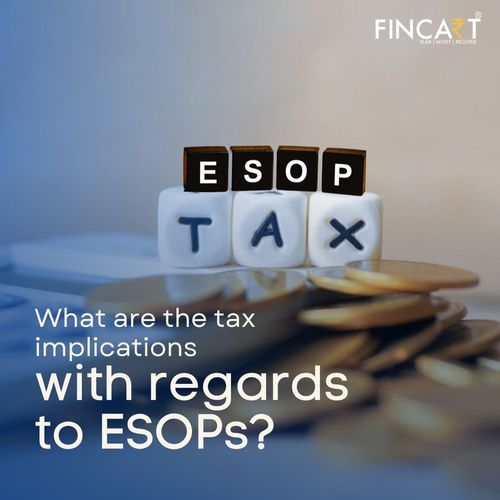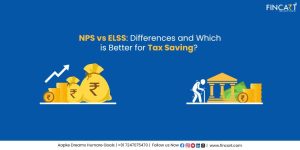Table of Contents
ToggleToday, ESOPs are no longer limited to large multinationals—they are now widely adopted by growth-stage companies that want to build loyalty and long-term wealth creation opportunities for employees.
However, while ESOPs can provide massive financial gains, they also come with tax implications that every employee should clearly understand. The way ESOPs are taxed—at the time of exercise and later at the time of sale—can significantly impact your take-home wealth. That’s where the expertise of tax consulting services and a professional tax consultant becomes invaluable for employees making decisions about exercising and selling ESOPs.
In this blog, we’ll simplify how employee stock options tax works in India, the latest updates you should be aware of, and smart tax planning services strategies to maximize your gains.
What Are Employee Stock Options (ESOPs)?
An ESOP gives employees the right (not obligation) to buy company shares at a predetermined price (called the exercise price) after a fixed period (called the vesting period).
For example:
- You join a startup in 2021.
- The company grants you 5,000 ESOPs at ₹100 per share.
- By 2025, the company’s market price rises to ₹800 per share.
If you exercise your ESOPs, you can buy them at ₹100 and immediately gain a profit of ₹700 per share.
This illustrates why ESOPs can be an incredible wealth-creation tool—but also why understanding taxation is crucial.
Taxation of ESOPs in India
The taxation of ESOPs occurs in two stages:
1. Tax at the Time of Exercise
When you exercise your ESOPs, the difference between the Fair Market Value (FMV) of the share and the exercise price is considered a perquisite.
- This perquisite is treated as part of your salary income.
- It is taxed according to your income tax slab.
- Employers are required to deduct TDS (Tax Deducted at Source) on this amount.
Example:
- FMV on exercise date = ₹800
- Exercise price = ₹100
- Gain = ₹700 per share
- For 5,000 shares = ₹35,00,000 taxable as salary income
This can create a tax liability even before you sell the shares, which is often the biggest challenge employees face.
2. Tax at the Time of Sale
When you eventually sell your ESOP shares, the gain is taxed as capital gains.
- Listed shares:
- Holding period < 12 months → Short-Term Capital Gains (STCG) taxed at 15% (u/s 111A).
- Holding period ≥ 12 months → Long-Term Capital Gains (LTCG) taxed at 10% (u/s 112A) above ₹1 lakh.
- Holding period < 12 months → Short-Term Capital Gains (STCG) taxed at 15% (u/s 111A).
- Unlisted shares (common in startups):
- Holding period < 24 months → STCG taxed at your income slab rate.
- Holding period ≥ 24 months → LTCG taxed at 20% with indexation benefit.
- Holding period < 24 months → STCG taxed at your income slab rate.
3. Tax on Dividends
If your ESOP shares start generating dividends, these are taxable in your hands at your applicable slab rate. Unlike earlier, companies no longer pay Dividend Distribution Tax (DDT).
Recent Updates in ESOP Taxation
The Indian government has recognized the growing use of ESOPs in startups and has made provisions to ease employee tax burdens.
- Startup-Friendly Deferment Rule (Finance Act 2020):
Employees of eligible startups can defer tax payment on ESOPs up to:- 5 years from the date of allotment, OR
- Date of sale of shares, OR
- Date of leaving the company
(whichever is earliest).
- 5 years from the date of allotment, OR
This deferment allows employees to avoid paying large taxes before liquidating their ESOPs.
- Increased Adoption by Startups (2024–25 trend):
Many unicorns and high-growth startups like Zepto, Razorpay, and Swiggy are offering buyback programs, giving employees more liquidity. This makes ESOPs a more attractive wealth-building avenue, but taxation planning has become even more important.
Common Challenges Employees Face with ESOP Taxes
- Liquidity Crunch at Exercise
- You may need to pay a huge tax bill at exercise, even before you sell the shares.
- You may need to pay a huge tax bill at exercise, even before you sell the shares.
- Unlisted Company ESOPs
- Valuation is uncertain, and capital gains tax becomes complicated.
- Valuation is uncertain, and capital gains tax becomes complicated.
- High Tax Slab Impact
- Perquisite taxation can push you into the highest slab, increasing tax burden.
- Perquisite taxation can push you into the highest slab, increasing tax burden.
- Double Taxation Confusion
- Many employees confuse salary tax at exercise with capital gains tax at sale.
- Many employees confuse salary tax at exercise with capital gains tax at sale.
- Exit Uncertainty
- If the company delays IPO or buyback, your ESOP wealth remains illiquid while tax obligations still apply.
- If the company delays IPO or buyback, your ESOP wealth remains illiquid while tax obligations still apply.
How Tax Consulting Services Can Help
Navigating ESOP taxation is complex. This is where tax consulting services and professional tax consultants add real value:
- Timing the Exercise: A tax consultant can advise on whether to exercise early (to reduce perquisite tax if FMV is low) or wait for better liquidity events.
- Optimizing Holding Period: Guidance on holding ESOPs long enough to qualify for LTCG and lower tax rates.
- Startup-Specific Planning: Applying deferment benefits correctly to avoid premature tax liabilities.
- Cross-Border Taxation: Employees working with multinational firms may face double taxation. Tax consultants help claim relief under DTAA (Double Taxation Avoidance Agreement).
- Exit Strategy: Planning the sale of ESOP shares during buybacks, IPOs, or secondary sales to minimize taxes.
Tax Planning Strategies for ESOPs
Here are some smart tax planning services strategies employees can consider:
- Exercise in Phases
- Instead of exercising all ESOPs in one go, split across years to avoid a sudden jump in taxable income.
- Instead of exercising all ESOPs in one go, split across years to avoid a sudden jump in taxable income.
- Early Exercise
- If company valuation is still low, exercising early may reduce perquisite tax liability.
- If company valuation is still low, exercising early may reduce perquisite tax liability.
- Use Startup Deferment Rule
- For eligible startups, defer tax liability until sale or exit.
- For eligible startups, defer tax liability until sale or exit.
- Invest in Tax-Saving Instruments
- Use deductions under Sections 80C, 80D, and NPS contributions to offset ESOP-related tax liabilities.
- Use deductions under Sections 80C, 80D, and NPS contributions to offset ESOP-related tax liabilities.
- Plan for Liquidity Events
- Align exercise decisions with company buybacks, IPOs, or private secondary sales.
- Align exercise decisions with company buybacks, IPOs, or private secondary sales.
Example of ESOP Taxation
- You are granted 5,000 shares at ₹100 each in 2019.
- By 2023, the market price rises to ₹600.
- In 2025, the share price further grows to ₹1,000.
When you exercise in 2023:
- You buy the shares at ₹100 while the market value is ₹600.
- The difference (₹500 per share × 5,000 shares = ₹25,00,000) is treated as part of your salary and taxed accordingly.
When you sell in 2025:
- You sell the shares for ₹1,000 each → ₹50,00,000 total.
- Since the cost for capital gains purposes is the FMV at exercise (₹600), your gain is ₹20,00,000.
- This is taxed at 10% (for listed shares held over 1 year).
In short, you pay tax twice: once as salary when you exercise, and again as capital gains when you sell. With proper tax planning services, you can time these steps better to reduce the overall tax burden.
Final Thoughts
ESOPs can transform employees into stakeholders and wealth creators—but the taxation of employee stock options is often misunderstood. From salary perquisite tax to capital gains and dividend taxation, there are multiple stages where you could end up paying more than necessary if not planned wisely.
With expert tax consulting services and proactive tax planning services, you can maximize your ESOP wealth while staying compliant with Indian tax laws.
At Fincart, we help professionals like you make smarter financial decisions. If you hold or are about to receive ESOPs, our team can guide you in structuring your tax liabilities efficiently and aligning them with your long-term wealth goals.




